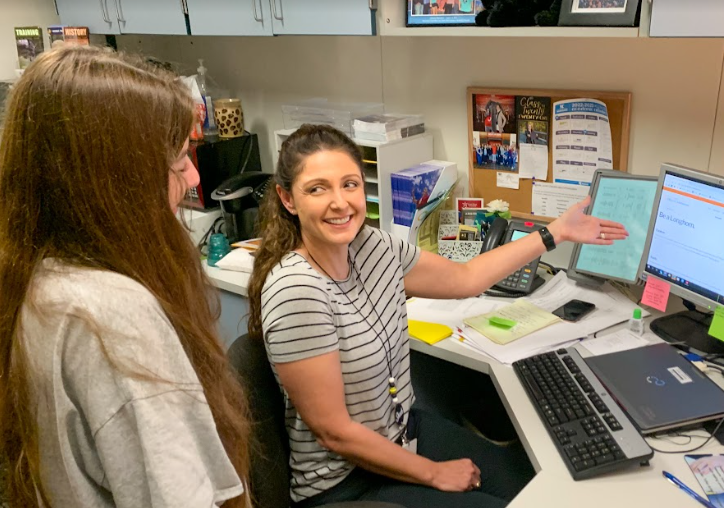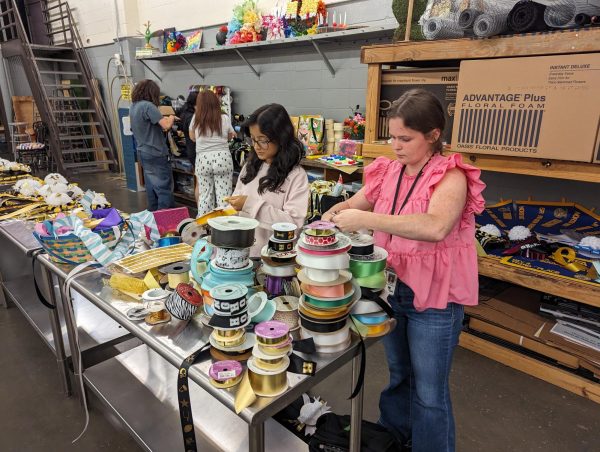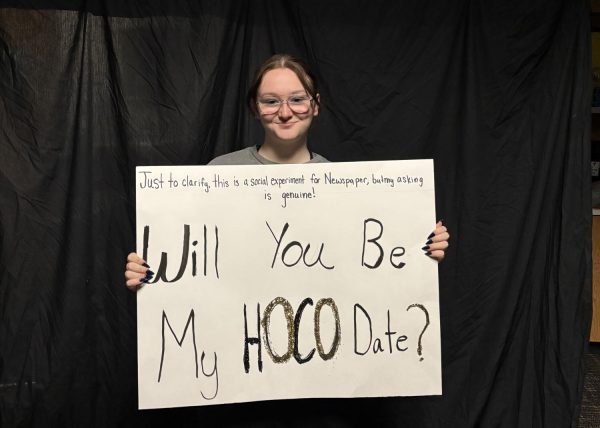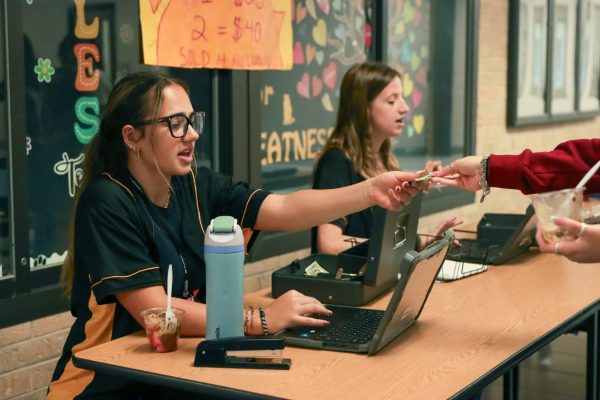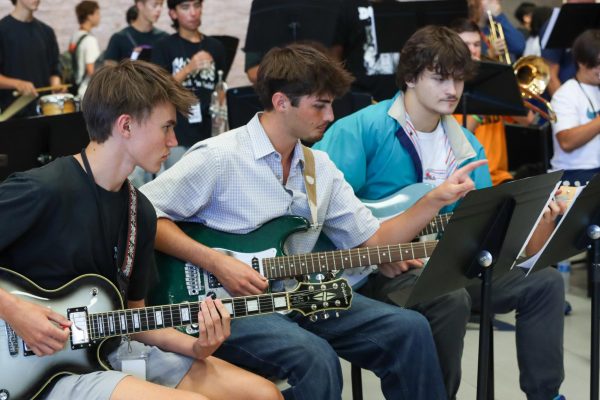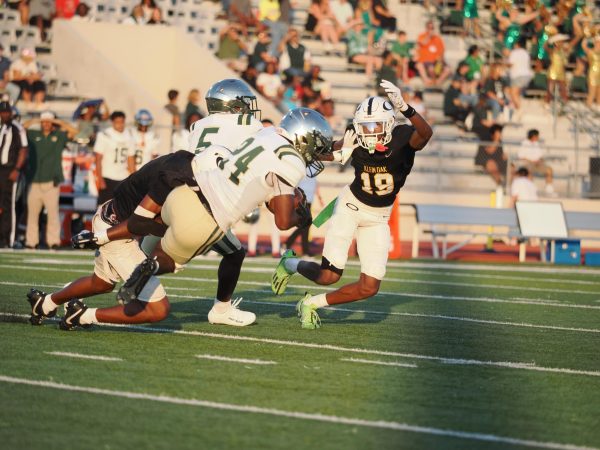Shock-ing Help
An indispensable resource awaits students in counselor’s office
Alongside senior Katie Shell, College and Career Counselor Jennifer Shock masterfully navigates the University of Texas application. “Mrs. Shock is a wonderful addition to Klein Oak’s staff,” Shell said. “I’ve been able to speak with her about my college resume and she was so helpful and kind. If you ever have any questions regarding the college process, Mrs. Shock is always in close touch and is a great person to seek guidance from.”
No college or career question is too big for counselor Jennifer Shock to answer. Shock is truly a jack of all trades when it comes to her position as the College and Career Counselor and Dual Credit Coordinator.
“Mrs. Shock is one of the most warm-hearted and helpful counselors I have ever encountered,” senior Gaby Martinez said. “Every time I entered her office I was welcomed into a safe space where I could be honest about my worries. She’s someone that goes above and beyond when helping students.”
Shock has been an asset to the staff since the fall of 2007, originally teaching English for five years. She transitioned into being an academic counselor for the next six years and then worked as a college and career counselor at a different school for two years. This is Shock’s third year back at Oak, where she serves as the cornerstone of all post-secondary counseling.
“The really exciting part about this job is getting to have a small part in helping students succeed,” Shock said. “Watching a student get into the university they’ve always wanted to go to, or earn a selective $20,000 Hammond Foundation Scholarship– those moments are incredible.”
Shock often connects students with military recruitment officers upon request and facilitates meetings between students and admissions advisers for colleges, universities or trade schools.
“I had a student interested in Tulsa Welding,” Shock said. “We ended up having a representative come down from Tulsa Welding a couple of times to meet with interested students and their families to coordinate what that process looked like.”
Understandably, many upperclassmen fear the possibility of amassing extreme student debt as they go to college and enter the workforce, but Shock’s hard work answering all financial aid questions, connecting students with financial aid offices, and finding scholarship resources is extremely valuable in eliminating the stress of the college application process.
“Mrs. Shock is super welcoming and very reassuring about the college process,” senior Cate Lovelace said. “This is a very stressful event, but Mrs. Shock gave me great advice that helped me feel more confident about my admission process.”
If a question somehow alludes Shock, she is steadfast in her resolve to hunt down the answer for inquiring students.
“Mrs. Shock does more than just fix trivial issues such as schedule changes. She genuinely cares about the well-being of those coming to her for help,” Martinez said. “If you have not had the pleasure to meet with Mrs. Shock to talk about everything relating to your future endeavors, this is your sign.”
College and Career Counselor Jennifer Shock Answers Commonly Asked Questions:
How do you know what scholarship websites are legitimate?
My general rule of thumb: don’t pay money to get money. There are plenty of scholarship resources available that aren’t behind a paywall.
Are there any specific topics to avoid when writing college application and scholarship consideration essays?
The idea is to set yourself apart from other candidates, so it’s difficult to say without reading each essay. You could talk about something that is commonly used (overcoming a struggle/obstacle, divorce, death…), as long as it stands out in some exceptional way.
To how many schools should seniors apply?
Five is usually the average, but it depends on the individual and their desired major. For example, engineering majors are super competitive, so it’s usually beneficial to apply to more schools. More selective schools take longer to give decisions back to students, so applying to a wider range of schools can alleviate some of the stress of waiting to hear back from a college.
How important is it to apply early to college?
Generally, the more competitive your major is, the earlier you should apply because spots fill up quickly. It just depends on the applicant and the school’s applicant pool. Early applications don’t necessarily mean you’ll have a better chance of getting in, but it takes away some of the pressure. If something goes wrong during the process or there’s a glitch, it gives you more time to take care of sudden issues.
When can students go on official visits to schools?
Juniors and seniors get two visits per year, and as long as you bring back some kind of official documentation from the university that says you were there on a visit, it won’t count against your attendance.
From whom should students ask for recommendation letters?
Most of the time students ask their teachers, but it doesn’t necessarily have to be the class you did the best in. The letters of recommendation need to be written by people who know you best. Choosing a class that you struggled in shows grit and perseverance. Colleges like to see that kind of tenacity.


